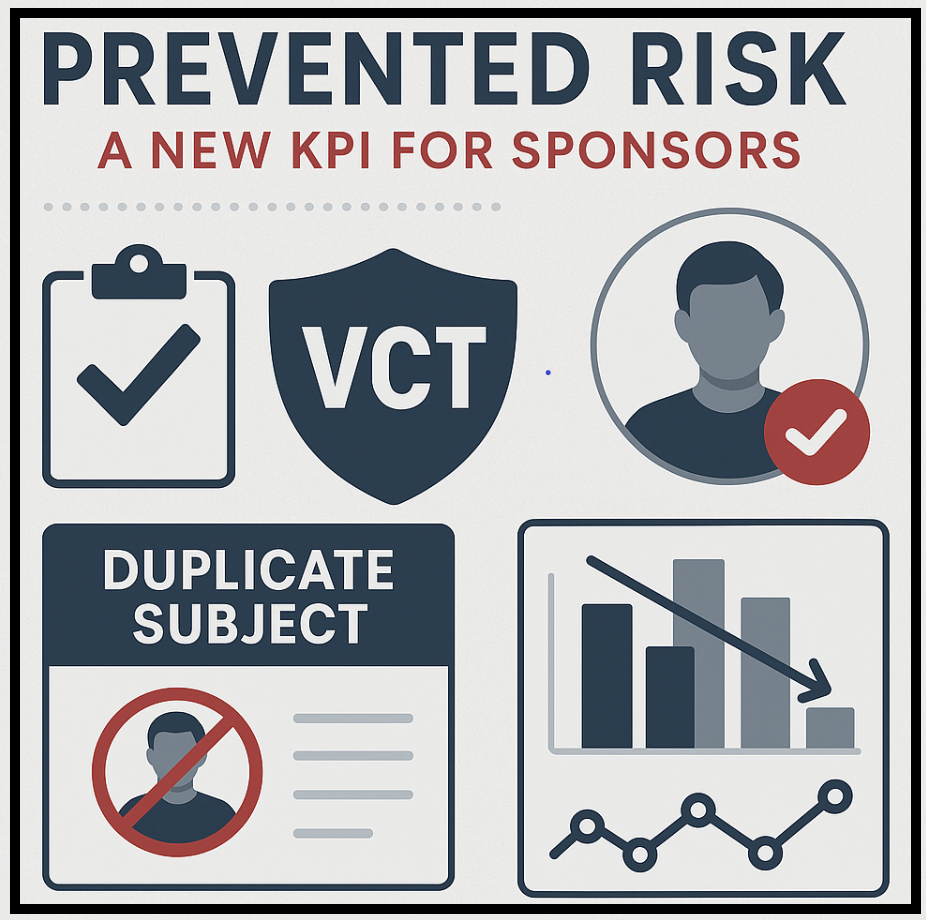
Volunteer Tracking Systems

What Are Volunteer Tracking Systems?
Across the research industry, new participant tracking systems have been created to prevent duplicate study enrollment. While their purpose is to protect study integrity, these databases have also raised major ethical and privacy concerns for healthy volunteers.
Systems like Verified Clinical Trials (VCT), Altasciences RSVP, and the CTS database by CenExel are now used across hundreds of research sites to collect and share volunteer data—sometimes even when no drugs are taken.
HVA’s Position on Tracking Systems
Healthy Volunteers Alliance is not opposed to the existence of volunteer tracking systems, nor do we encourage or support individuals enrolling in overlapping or unsafe studies. Participant safety must always come first and foremost.
Our concerns focus on specific policies and practices within some tracking systems, particularly the lack of independent oversight, transparency, and consistent accountability.
These databases operate across institutions-and in some cases globally-yet are not governed by a regulatory body responsible for protecting the rights of healthy volunteers across the world.
HVA advocates for responsible use of tracking systems by CRU’s. Clear limitations on data use and retention, meaningful transparency for participants, and the establishment of appropriate oversight committees to ensure these systems serve both research integrity and volunteer protection.
When tracking systems have a significant impact on participants but yet operate without clear external oversight, defined safeguards, or meaningful avenues for review or correction, serious ethical and participant-rights concerns arise.
FaceBook Members Click on the Picture Above for More Info
The Labeling Problem: “Professional Participants”
Private registries and CROs have created and popularized the term 'professional participant'—a stigmatizing label for people who screen for multiple studies.
This term is not defined or formally recognized in FDA or OHRP regulations and it is an industry-created label that can unfairly stigmatize active volunteers as dishonest or harmful to research integrity.
Although healthy volunteers are often described using different terms, no label should be used to undermine their value, credibility, or right to fair and respectful treatment
Click on Picture above for Link to VCT
“Detect and Prevent Duplicate Research Subjects”
Volunteer Tracking Systems~What Healthy Volunteers Should Know
Across the clinical research industry, research sites, sponsors, and contract research organizations (CROs) commonly use volunteer tracking systems to help manage participant eligibility and prevent overlapping study participation.
The most widely used system across the U.S. research sites- and one that operates globally- is Verified Clinical Trials (VCT).
Some sites may also use additional or site specific tracking tools, such as CTS (CenExel) or RSVP (Altasciences), depending on organizational policies and study requirements.
While these systems are intended to support participant safety and study integrity, their use also raises important questions about transparency, consent practices, data retention, and participant understanding—particularly for healthy volunteers, who often screen for multiple studies over time.
Healthy Volunteers Alliance (HVA) believes volunteers deserve clear, consistent, and accurate information about how these systems operate and how they may affect eligibility decisions.
How These Systems Are Used
Depending on the site and study, volunteer tracking systems may be used to:
Identify recent or overlapping study participation
Review screening or enrollment history
Support compliance with protocol-defined washout periods
Assist with internal eligibility determinations
IMPORTANT NOTE: Use of any tracking system is determined by the research site or sponsor and may vary widely between organizations.
Consent Practices and Transparency
Consent for volunteer tracking systems is not handled consistently across clinical research sites.
In many cases, tracking system consent is not included in the main study informed consent form (ICF). Instead, volunteers may be asked to sign a separate consent or registry form related specifically to a tracking system.
These forms are typically retained by the site and are not always provided to the participant upon each visit.
When volunteer tracking systems are used in ways that may affect eligibility decisions, Healthy Volunteers Alliance believes this use should be clearly disclosed in the informed consent process.
Screening-only visits, data entry into registries, or internal labeling practices that carry downstream consequences should not occur without participants being clearly informed in advance.
HVA believes that when volunteer tracking systems are used to inform eligibility decisions, including screening-related exclusions, this use should be clearly disclosed and justified within the study’s informed consent process.
Volunteers should be informed when screening data will be entered into a tracking system, how that data may be used, and whether it may affect future eligibility decisions—even if no investigational product is administered.
Practices vary significantly:
Some sites require volunteers to re-sign tracking system consent forms at each screening visit.
Other sites request consent only periodically or rely on signatures obtained long ago.
As a result, volunteers may attend screening visits without clearly knowing whether their information is being entered into or updated within a tracking system at that visit, or what the terms of that consent are.
Volunteers have also reported difficulty obtaining copies of previously signed tracking system consent forms, even when requested.
This lack of consistency can make it difficult for participants to fully understand how their information is being used.

Data Collection and Retention
The specific data collected by volunteer tracking systems can vary by system and by site but may include:
Name or identifying initials
Date of birth
Gender
Height and weight
Screening and participation dates
Other identifiers used for internal matching
In some cases, information may be recorded even when a volunteer screens for a study but does not enroll or receive an investigational product.
Data retention periods may extend for many years, depending on organizational policies, and participants are not always informed how long their information will be stored or how it may be used in future eligibility decisions
Ethical and Legal Concerns
These databases claim to protect volunteers, but often operate with limited transparency.
Many participants are unaware that they are being entered into a private registry—or that their screening data (even when no drug is taken) may be stored for decades.
Tracking systems operate primarily as private databases, often with limited external oversight. This raises ethical considerations related to:
Transparency
Respect for persons
Fair treatment
Data accuracy and accountability
While volunteer tracking systems are not themselves governed by the Belmont Report, the ethical principles outlined in Belmont-”respect for persons, transparency, and fairness” -are directly relevant when systems influence participant eligibility, data use, and long term handling of participant data.
When databases affect individuals without meaningful consent, clear disclosure, or avenues for correction, these ethical principles are implicated even in the absence of direct regulatory oversight.
HVA’s Commitment
Healthy Volunteers Alliance advocates for transparency, consistency, and fairness in the use of volunteer tracking systems.
While HVA respects the role of research sites, sponsors, IRBs, and regulatory requirements, our primary responsibility is to healthy volunteers—who currently lack independent representation.
When systems intended to promote safety are applied in ways that create confusion, inconsistency, or unfair outcomes, HVA will continue to advocate for clearer standards and participant-centered practices.
Understanding Your Verified Clinical Trials (VCT) Consent
When you sign a consent form linked to the Verified Clinical Trials (VCT) system, you’re agreeing to more than just one study — you’re entering a network that can affect your rights, your data, and your future participation.
This section helps volunteers understand what they’re actually authorizing when they sign these forms.
1. What You Are Asked to Authorize
• The form usually asks for permission to collect and store personal identifiers (initials, date of birth, ID numbers) in a shared registry.
• It may grant permission for future study sites using VCT to access this data for eligibility checks.
• Data may be stored for up to 25 years, and withdrawing consent might not delete all prior data.
• Authorized users — including clinic staff, sponsors, CROs, and database operators — can view your eligibility and participation status.
2. Your Rights — and What May Limit Them
• You have the right to ask how your data is collected, used, shared, and stored.
• Screening-only visits may still be logged as if you participated in a study.
• The consent may be required to even screen for a study — making ‘voluntary’ consent questionable.
• Check if you can request correction or deletion of your data and whether this will truly remove you from the registry.
3. Ethical and Practical Concerns
• Long-term data retention allows continued use and sharing of volunteer information well beyond participation.
• Some volunteers are flagged as “duplicate” or ”professional participants” based on partial matches or assumptions.
• Ambiguous wording like “future studies” makes it unclear how your data may be reused.
• Volunteers often sign under pressure to enroll, creating a power imbalance.
4. What You Should Check and Ask Before Signing
Before signing, consider asking:
• How long will my data remain in the registry?
• What identifiers are collected (name, DOB, ID, etc.)?
• Who will have access — other clinics, sponsors, or CROs?
• Will screening-only visits be logged as active participation?
• How can I request deletion or correction of my record?
• What happens if I decline to sign — will I still be able to participate in any capacity?
References & Supporting Sources
Verified Clinical Trials – https://verifiedclinicaltrials.com
Protection of Human Subjects; Institutional Review Boards - FDA Regulations: 21 CFR Parts 50 & 56 –
The Common Rule - HHS/OHRP: 45 CFR Part 46
Ethical Principles and Guidelines for the Protection of Human Subjects of Research - The Belmont Report (1979)
CTSdatabase by CenExel – https://ctsdatabase.com
Clinical RSVP-Altasciences -https://www.altasciences.com






